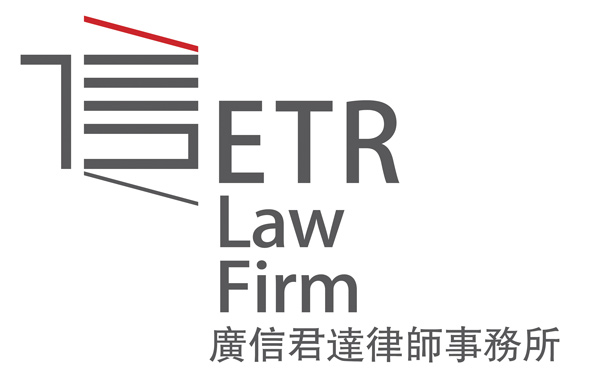If a company is unable to continue an employment contract due to “material changes in objective circumstances”, is it legal to terminate an employee in the absence of fruitful negotiation? In this article, the author examines “objective circumstances” and criteria for determining them, based on a specific case.
In this case, Zheng joined company A as an account manager in October 2005 on an open-term labour contract. On 7 September 2018, company A terminated Zheng’s labour contract on the grounds that “the company suffered serious losses due to the impact of the market, making it necessary to adjust the operation mode and suspend business for fitting-out, and was unable to continue to perform the labour contract despite the consultation”.
Believing that company A illegally terminated the contract, Zheng applied for labour arbitration and claimed compensation for illegal termination.
ARBITRATION AWARD

Partner
ETR Law Firm
Initially, the Labour Dispute Arbitration Commission held that the termination of the labour relationship was legal, but company A should pay Zheng economic compensation.
Zheng refused to accept the award and filed a lawsuit at the court of first instance seeking compensation from company A for illegal termination of the labour relationship. This time the court held that the termination by company A was illegal, and that it should pay damages to Zheng.
But company A refused to accept the first instance judgment and sought the author’s intervention in the second instance.
Eventually, the court of second instance held that company A’s termination of the labour relationship was in accordance with article 40.3 of China’s Labour Contract Law on the grounds that both parties failing to reach an agreement did not violate the law, and that the decision of the court of first instance was wrong, and should be corrected according to law. Finally, the court of second instance ruled that company A only needed to pay Zheng economic compensation for legally terminating the labour relationship.
THE AUTHOR’S OPINIONS
The focus of dispute in this case was whether company A’s situation conformed to “material changes in objective circumstances”.
The author held the opinion that:
- In accordance with article 26 of the Explanations of the Ministry of Labour regarding Provisions of the Labour Contract Law, “objective circumstances” refer to events of force majeure or other circumstances that make the contract impossible to perform, such as enterprise relocation, enterprise merger, and transfer of enterprise assets. In this case, company A was merged by a third-party hotel due to its poor management and serious long-term losses. According to the provisions, the merger was a material change in objective circumstances from which the labour contract was originally based.
- In accordance with article 19 of the Regulations for the Implementation of the Labour Contract Law, the act of company A in this case was adjustment of operational mode due to serious difficulties in production and operation, making it a material change in the objective economic circumstances.

Associate
ETR Law Firm
Additionally, company A did not dismiss Zheng maliciously. After the “objective circumstances” changed, company A immediately sent meeting notices to all employees, and Zheng attended the meeting personally.
Later, company A negotiated with Zheng several times, but he did not accept the termination. Company A exhausted all means to negotiate with Zheng to change or terminate the labour relationship. In this case, it would have been too difficult to require company A to terminate the labour contract with Zheng’s consent. Otherwise, the double compensation provided in the Labour Contract Law would only become a legal tool for some to obtain illegal benefits.
CASE ANALYSIS
Company A, a large private enterprise, was engaged in hotel management. Due to poor management and the impact of the market, it had been in deficit for a long time, so it was necessary to change its operational mode. Whether from the perspective of stopping loss or rescuing the company, a merger by a third party was the best choice. After the merger, renovating and redecorating the hotel was in line with the market rules for merger, division or consolidation of companies.
Since company A had to completely suspend business for fitting-out, it was unable to offer Zheng a corresponding job and conditions. After failing to reach agreement with him despite prolonged negotiations, it terminated the labour relationship and paid economic compensation.
It would have been unfair to company A if the merger decision constituted its subjective adjustment based on its own operating conditions, rather than an objective factor, and would make the company prone to a dilemma, which was not conducive to the transformation or rescue of the company. As the merger became an objective fact unexpected by either Zheng or company A, it fell into the scope of “objective circumstances”.
The decision to merge was made by company A based on its overall business situation, rather than aimed at Zheng or any other employee. It should not be determined as a subjective decision by the company, damaging legitimate rights and interests of the employees. Otherwise, it would undoubtedly aggravate difficulty of the merger.
In addition, even if the company’s decision was subjective, the key point for examination in this case was whether it was necessary – upon occurrence of the objective fact of the merger – for Zheng and company A to negotiate to change the original labour contract to determine whether it was legal for company A to terminate the labour relationship when negotiation failed, rather than whether the merger decision was a subjective adjustment or an objective factor.
On thorough analysis of this case, the author suggests that in dealing with similar cases, no matter which party, achieving the ideal result requires correctly understanding and grasping whether or not the employer’s circumstances are objective.
10 & 29/F, Chow Tai Fook Finance Centre
No. 6 Zhujiang Dong Road
Guangzhou 510623, China
Tel: +86 20 3718 1333
Fax: +86 20 3718 1388
Email:
366958567@qq.com
yinsongmao6@163.com






















